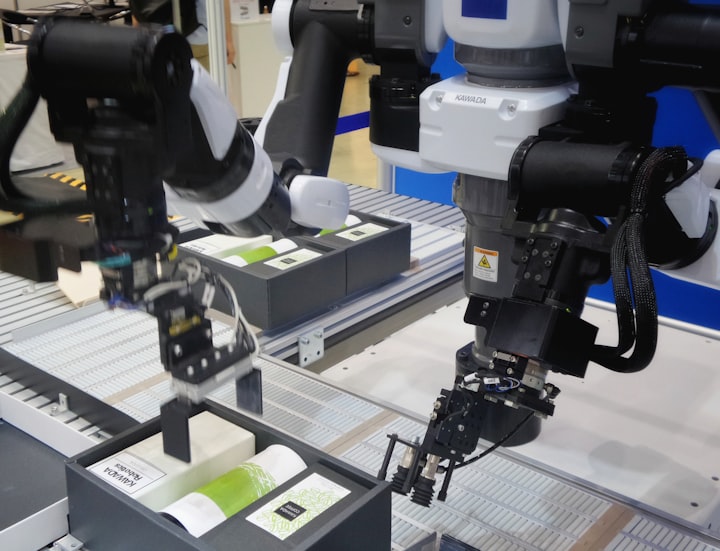The Dark Side of Tech
Ethical Dilemmas in Artificial Intelligence

Artificial intelligence (AI) is leading the way in today's innovation landscape, with the potential to transform entire industries, optimize workflows, and improve our daily lives. But despite all of AI's wonders, a dark world of ethical dilemmas looms large, casting doubt on our conceptions of morality, accountability, and the consequences of uncontrolled scientific progress.
Fundamentally, artificial intelligence (AI) is a creation of human intellect; it is meant to mimic human intelligence, which is capable of learning, reasoning, and decision-making. However, as AI systems develop and become more integrated into society, a host of ethical issues arise that need to be taken into account.
Bias is a major ethical problem in artificial intelligence. When AI systems are trained on historical data, they may unintentionally reinforce or even magnify preexisting biases in the data. For example, AI-powered systems may unintentionally favor particular groups during the hiring process, maintaining social injustices. It is essential to identify and address these biases in AI systems in order to guarantee equity and equal chances for all.
Invasion of privacy is yet another serious issue. For AI systems to work well, enormous volumes of personal data are frequently required. Significant privacy concerns are raised by the gathering and use of this data, particularly where consent and transparency are lacking. Finding a balance between the advantages of AI-driven personalization and the defense of individual privacy rights is an ethical dilemma.
The unpredictability of AI decision-making procedures presents an additional ethical challenge. As AI develops, it will be able to make judgments on its own that have a significant influence on people's lives, such as approving loans and diagnosing illnesses. It can be difficult to comprehend the reasoning behind these choices, though, which raises questions about openness, accountability, and the possibility of biases or mistakes being unchecked.
Furthermore, the employment of AI in autonomous weaponry systems prompts moral concerns about the propriety of giving robots control over life and death choices. The basic moral and ethical principles of warfare are called into question in such situations due to the absence of human monitoring.
To tackle these moral dilemmas, a diverse strategy is required. First and foremost, regulatory frameworks that control the creation, application, and utilization of AI technology are desperately needed. While preserving the right to personal privacy, these policies ought to place a high priority on accountability, transparency, and fairness.
Additionally, in order to reduce biases in AI systems, it is imperative that development teams for AI promote diversity and inclusivity. In order to provide more fair outcomes, diverse views can assist in identifying and correcting biases within datasets and algorithms.
Education and awareness about ethics are equally vital. Programs that educate the public, legislators, and developers about ethical implications of artificial intelligence (AI) can encourage more responsible research, development, and application of the technology.
Ethics should always take precedence over technological innovation. It is crucial to incorporate ethical reasoning into the basic foundation of AI research as it advances. Fairness, accountability, openness, and privacy protection are examples of ethical AI design concepts that ought to influence every stage of an AI system's development.
In order to successfully navigate the complex terrain of AI ethics, cooperation amongst stakeholders—governments, tech corporations, ethicists, researchers, and the general public—is essential. It is possible to build comprehensive rules and ethical standards that strike a balance between innovation and societal well-being through open talks and interdisciplinary collaborations.
In the end, the ethical challenges raised by AI are not impassable barriers, but rather critical issues requiring proactive, group-wide response. Adopting ethical standards in the development and application of AI is not a limitation, but rather a chance to maximize technology's revolutionary potential while respecting human values and dignity.
A thoughtful and moral approach will be our compass as we venture further into the field of AI-driven innovations. It will lead us away from the perilous paths of unintended consequences and toward a time when technology improves lives and builds a more just society.
About the Creator
Dankuela_010000
I am a passionate writer dedicated to sharing my thoughts, experiences, and insights on a wide range of topics. I write to connect with readers, to inspire them, and to spark meaningful conversations messages and ideas efficiently.






Comments
There are no comments for this story
Be the first to respond and start the conversation.